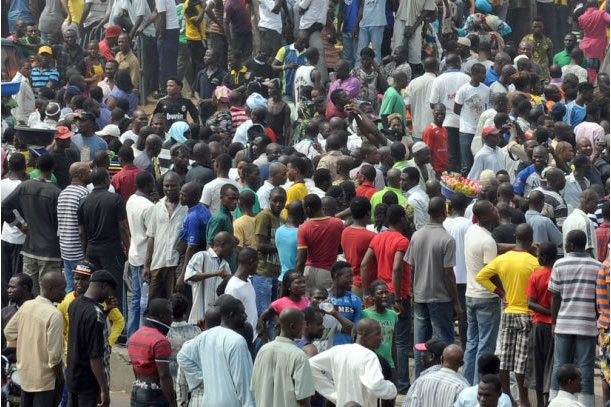Latest News
Nigeria ranks lowest on Oxfam's Reducing Inequality Index

News Highlight
Nigeria has been ranked as the worst-performing country with regard to the commitment of government to reduce the gap between the rich and the poor.
For two consecutive years, Nigeria has been ranked as the worst-performing country with regard to the commitment of government to reduce the gap between the rich and the poor.
The Commitment to Reducing Inequality (CRI) Index 2018, which was released on Monday by Oxfam International and Development Finance International (DFI), measures government action on social spending, tax and labour rights – three areas found to be critical to reducing the gap. Nigeria is ranked 157th out of 157 countries in the 2018 CRI index.
Oxfam International, an organisation that is working to end the injustice of poverty; and DFI, a non-profit advocacy and research group, said Nigeria’s social spending on health, education and social protection is abysmally low. This has reflected in poor social outcomes for the citizens.
In the first edition of the CRI index released in 2017, Nigeria was at the bottom of the index, which surveyed 152 nations. This year, the index covers 157 countries. The report shows there has been an increase in the number of labour rights violations in Nigeria in the past year. The minimum wage has not been increased since 2011 and more than 10 million children in Nigeria do not go to school.
Other countries at the bottom of the 2018 CRI index are Bangladesh (148th), Singapore (149th), Laos (150th), Madagascar (151st), Bhutan (152nd), Sierra Leone (153rd), Chad (154th), Haiti (155th) and Uzbekistan (156th). These countries have shown a lack of commitment to close the inequality gap.
Goal 10 of the 17 Sustainable Development Goals (SDGs) calls for reducing income inequalities based on sex, race, ethnicity, religion or class — both within and among countries. According to the index, it will be impossible to eliminate poverty, which is Goal 1 of the SDGs, without reducing inequality.
The report, therefore, recommends the development of national inequality action plans in different countries in order to achieve SDG 10. These plans should include delivery of universal, public and free health, education and universal social protection initiatives. These should be funded by increasing progressive taxation and clamping down on exemption and tax dodging. Countries are also called upon to raise minimum wages to living wages, respect union rights and make women’s rights at work comprehensive.
The 10 countries at the top of this year’s index are Denmark (1st), Germany (2nd), Finland (3rd), Australia (4th), Norway (5th), Belgium (6th), Sweden (7th), France (8th), Iceland (9th) and Luxembourg (10th).
According to the report, Denmark has the most progressive taxation policies, best labour market policies, and its protection of women in the workplace is the best in the world.
Related News
Latest Blogs
- The Museum of West African Art saga
- The complexity and complication of Nigeria’s insecurity
- Between bold is wise and wise is bold
- Prospects of port community system in Nigeria’s maritime sector
- Constitutionalism must anchor discipline in Nigerian Armed Forces
Most Popular News
- NDIC pledges support towards financial system stability
- Artificial intelligence can help to reduce youth unemployment in Africa – ...
- Afreximbank backs Elumelu’s Heirs Energies with $750-million facility
- AfDB and Nedbank Group sign funding partnership for housing and trade
- Africa needs €240 billion in factoring volumes for SME-led transformation
- ChatGPT is now the most-downloaded app – report






